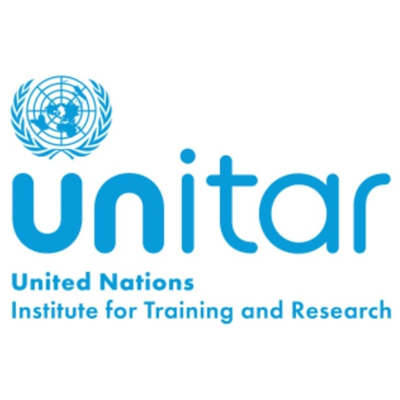Honorary Doctorate
HONORARY DOCTORATE/ HONORIS CAUSA (RPL) PROGRAMME
All doctorate candidates who apply for HONORIS CAUSA are processed via a process called RPL (Recognition of Prior Learning)
The RPL process involves the submission of a profile of evidence for valuation by a professional committee, which then assesses an individual’s work experience, skills, and competencies. If the candidate is approved, they can take a diploma or certification. It is imperative to note that the requirements for RPL may vary depending on the specific program or certification, and interested individuals should contact the programme admin at research@londoninstitutesd.co.uk for any further details.
Individuals who hold a Honoris Causa award are entitled to use the title “Dr. (H.C)” in front of their name. However, the specific use of the title “Dr.” may vary depending on the country and jurisdiction, and individuals should consult the relevant authorities or professional organizations for specific guidance.
The RPL is conferred on deserving candidates based upon the set of accomplishments and testimonials submitted to LISD (Recognition of Prior Learning), along with candidate’s standing in his/her society and context gauged and validated through his/her noteworthy contribution.
Honorary Doctorate (HONORIS CAUSA) Nomination
A nominator is required to observe the following criteria while nominating a person:
- The awarding of an honorary degree is a recognition of a person whose life and achievements serve as examples to humanity. It should be offered well before the end of a career, while the accomplishments are recent and the activities worthy of the highest commendations.
- An honorary degree may be offered to a person who has contributed significantly to the cultural, scientific, and/or social development of their community, country, nation, or world. The contribution should be sustained over the years and should be lasting in nature. One should be able to document the national or international impact of the contributions. The mere holding of an executive position, public office, or professorship for many years is not sufficient. The creativity of the individual and the extraordinary character of the contributions must be evident.
- The individual receiving an honorary degree should have a sustained reputation over the years. The reputation preferably should extend nationally or internationally.
- The activities of the individual should contain outstanding contributions to various aspects of society. The person might be a distinguished scholar in the natural, physical or social sciences, the arts or humanities, or a distinguished person in public life, business, the professions, or the performing arts. Evaluation will be based on the level of intellectual and professional attainment and the significance of the contributions to the enrichment and/or welfare of the nation, or world.
Honorary Degree Nomination Procedures
- Nominations will be sent to the Office of the JOINT CHAIRMAN via email: research@londoninstitutesd.co.uk, and may be made by any esteemed person of the society or by the nominee as the self-nomination. The nominator should submit an intent letter indicating the importance of the candidate’s achievements and the reasons why these achievements should be honored by the Institute & Committee along with a biographical sketch of the candidate. Other documents, such as contact details or recommendation letters by any two significant professional referees are also welcome.
- The Office of the CHAIRMAN will assemble dossiers, ask for further information from the nominator if necessary, duplicate the dossiers for the Honors and Awards Committee, and mail the information to committee members.
- After short-listing, nominees to be invited to attend a virtual interview session with the committee members. Finally, selected persons will be invited to receive a degree, and may authorize the COMMITTEE to invite alternates if the original invitee declines. The Committee shall decide how many awards will be recommended, and in what categories, considering a proper balance of fields of endeavor and other factors. An honorary degree cannot be offered to a previous recipient.
- A Committee report and a slate of nominees will be presented to the Board of Directors. The Board will make its selections and set the date of the event as the Commencement or a special Convocation.
Honorary Degrees may be awarded in four key categories but might further refer to specialized or diversified fields.
Doctor of Humanities
Distinguished service to the state or to the nation, learning, humankind, culture, society, politics, or any other area of humanities coupled with intellectual gifts and moral qualities that entitle the recipient to rank with persons of culture and high principle.
Doctor of Business Administration
Distinguished service in a trade, commerce, business, or further associated fields of business administration coupled with personal qualities and a kind of learning that entitles the recipient to recognition by a learned educational body of high standing.
Doctor of Arts
Distinguished service to of general nature, language, literature, art, music, or education, coupled with intellectual and moral qualities that are widely recognized.
Doctor of Science
Distinguished service to science, technology, or innovation coupled with personal qualities and a kind of learning that entitles the recipient to recognition by a learned educational body of high standing.
Confidentiality
Nomination information submitted will be kept confidential. Confidentiality at all points in the nominating process is crucial. No discussion concerning nominees should take place outside of those directly involved in the evaluation process. The President, or a designee, is responsible for contacting the candidates once the Board of Trustees has approved a slate of candidates.
Criteria for Selecting Honorary Degree Recipients
On the recommendation of the Honors and Awards Committee and the President, the Board of Trustees may vote to confer honorary degrees on distinguished individuals. The Board should award an honorary degree only in recognition of extraordinary and lasting distinction. The award should represent the highest intellectual and moral values; it should reflect the very character and quality of the University itself.
- The awarding of an honorary degree is a recognition of a person whose life and achievements serve as examples to society. It should be offered well before the end of a career, while the accomplishments are recent and the activities worthy of the highest commendations.
- An honorary degree may be offered to a person who has contributed significantly to the cultural, scientific, and/or social development of their community, country, nation, or world. The contribution should be sustained over the years and should be lasting in nature. One should be able to document the national or international impact of the contributions. The mere holding of an executive position, public office, or professorship for many years is not sufficient. The creativity of the individual and the extraordinary character of the contributions must be evident.
- The individual receiving an honorary degree should have a sustained reputation over the years. The reputation preferably should extend nationally or internationally.
- The activities of the individual should contain outstanding contributions to various aspects of society. The person might be a distinguished scholar in the natural, physical or social sciences, the arts or humanities, or a distinguished person in public life, business, the professions, or the performing arts. Evaluation will be based on the level of intellectual and professional attainment and the significance of the contributions to the enrichment and/or welfare of the nation, or world.
- The Committee will make an effort to recognize the achievements of women and minorities, consonant with the equal opportunity goals of the institution.
- The recipient accepts the degree without receiving payment.
- The recipient has a strong reputation in their field.
- The recipient has a sponsor of their travel, boarding, and lodging to attend the award ceremony or convocation in the U.K or maybe the recipient has self-sponsorship means.
RPL - Convert Your Experience into a British Qualification
- Post-Graduate Diploma
- Executive MBA
Recognized Prior Leaning (RPL) is an assessment process to recognize candidates’ skills and knowledge based on evidence of their past formal or informal training, work experience, achievements, and/or through demonstrating their abilities. The benefit of RPL is to reduce unnecessary repetition of previous learning, to achieve qualifications in less time, and to gain entry into a higher qualification. Additionally, formal recognition of your skills could help you with:
RECOGNISED & ISSUED BY CPD, U.K. and LONDON INSTITUTE
OF SKILLS DEVELOPMENT, U.K, RESPECTIVELY
Previous Honorary Degree Recipients

Dr. (H.C) Anne
McCarron (Murphy)

Dr. (H.C) Chew
Chong Wan

Dr. (H.C) Kausar
Saida

Dr. (H.C) Hoo
Geok Choong

Dr. (H.C) Irene
Khajalia

Dr. (H.C) Jenet
Foo Sieo Yin

Prof. Dr. Khalid
Lafdi

Dr. (H.C) Low
Lay Theng

Prof. Dr. Mahdi
Dahmardeh

Dr. (H.C) Matt
Ng

Dr. (H.C) Nam
Huey Fen

Dr. Tan
Wei Xin

Dr. (H.C) Yap
Han Seong
Partners in Our Cause











